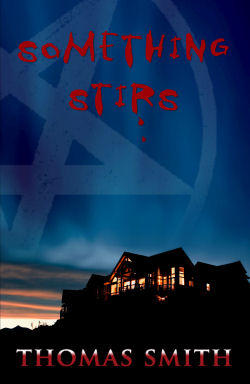|
Welcome
back. Are you all comfy? Got your favorite beverage and a big bag of
Cheetos at hand? Good, because today we’re going to revisit your school
days. The only difference is, I don’t have a three foot tall beehive
hairdo and smell like chalk dust, and you won’t have to stand in the
corner.
That being said, let’s take a
look at some common (and uncommon) terms that have to do with writing
and publishing.
A
Agent.
Something every writer thinks they need. An agent represents a writer
(generally novelists, screenwriters and major non-fiction writers) and
their written works to publishers, theatrical producers and film
producers. An agent negotiates the contract and acts as your liaison
through the publishing process. If you are writing fillers and short
stories, skip this listing.
Author. What
you become after you have written something and had it published.
(Writer and author are not interchangeable. You have to have written
something before you can be an author. Think about that one).
B
Backlist.
This is all of an author’s books from previous publishing seasons that
are still in print. A backlist is a good thing. A long backlist is a
really good thing.
Book Packager.
A company that takes on the process of putting together a book
(including writing, researching, editing, designing, illustrating, and
sometimes printing) for a publisher. In short, a book packager does
everything except market, sell and distribute the book.
C
Characters.
Without these your novel is nothing but scenery.
Check. The
thing you want to swap your submission for.
Competition.
That’s the other people who are trying to get the same writing gigs you
are (except for the folks who don’t pay attention to market research,
formatting and all that kind of professional stuff. They’re not much
competition).
Cover Letter.
A brief introductory letter normally sent to an editor or publisher
with a submission. Best kept to no more than one page
D
Deus ex machina.
Latin for "god out of the machine." A plot device which allows an
impossible problem to be solved with the unexpected intervention of
some new character, ability, or object. Usually a sign of sloppy
plotting and writing.
Dialogue. A
vital writing tool unless you are writing about a community of mimes.
Solid, natural dialogue enhances a story and moves it along. Unnatural,
stale dialogue makes the reader wish you were writing about a community
of mimes.
Dang It.
What you say when you realize you either misspelled an editor’s name or
used the wrong editor’s name. (There are variations of this term that
are also used, but this is a Christian magazine)
E
E-book (electronic
book) – Books published in an electronic format that can be
downloaded to computers or handheld devices.
Editor. An
editor reviews written text and identifies errors related to the use of
language including grammatical mistakes, misspellings, incorrect
punctuation, and poorly structured sentences. Editors are also a
writer’s advocate through the sales and marketing process at a
publishing house. An editor can be your best friend or your worst
nightmare. It’s your choice.
Electronic
Rights. The right to publish a work in various digital
formats.
Exposition.
The initial setup of a story where the setting is established,
characters are introduced, and some kind of conflict is initiated.
F
Fiction.
Deals with imaginary events created by the author.
Filler. Short
items (often a page or less) used to fill space between more important
articles in the layout of a magazine, newspaper, newsletter, etc. They
are called filler because they are used to “fill out” the volume.
Fillers include jokes, recipes, trivia and short anecdotes.
|
Format.
Guidelines for the way a manuscript is presented including margins,
line spacing, text justification, font usage and project length.
Novels, stage plays, radio scripts and other types of manuscripts use
different formats. Proper formatting is vital if a writer is to be
taken seriously.
Freelance Writer.
A writer who works for a company, publisher or individual on a contract
basis. The greatest job in the world. Originally the term was used by
Sir Walter Scott in Ivanhoe to describe a "medieval mercenary warrior"
or "free-lance" (meaning the lance is not sworn to any particular
lord's services so he was free to serve any nobleman who could afford
his services).
G
Galley. In
magazines a galley is the final page showing how the article will look.
A book galley (also known as galley proofs or page proofs) is the text
used for proofreading before the final page assembly. While galleys are
used essentially used for proofreading and copyediting purposes, they
can also be used for promotional and review purposes (at the
endorsement stage, for example).
Genre. A
genre is any category of literature (romance, westerns, science
fiction, etc.)
Ghostwriter.
A writer who comes back from the grave to work on a writing project. *
Guidelines. A
document put together by a publisher that specifies their requirements
for accepting material from writers. (In other words, those things
which, if you aren’t reading them and abiding by them, are a big reason
you may be passed over for writing assignments).
H
Hook. A
word or catchphrase captures the essence of your book. If you don’t
have a hook, don’t bother pitching the book (hey … that kinda rhymes).
Okey boys and girls, we made it
through the beginning of the “H”
section, so I guess that’s a dead giveaway as to what’s coming next
month. So if I didn’t cover your favorite letter, don’t worry. It’s
coming.
Until next time, keep those
keyboards clattering and those queries
going out.
* [OK, I lied about that one. A ghostwriter
is a
professional writer who writes on an assigned topic under someone
else's name. Many big name celebrities and industry leaders have
ghostwriters to write or co-write their books (you didn’t think William
Shatner actually wrote the Tekwar series by
himself, did you? That was science fiction author Ron Goulart’s job) as
do other people who have good ideas but don’t know how to put them on
paper. Publishing houses and book packagers often use ghostwriters to
write various projects (The old Doc Savage novels
and many of the Goosebumps books for example).]


|









